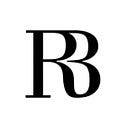Why is retail called retail?
The term “retail” is derived from the Old French verb “tailler,” which means “to cut off, clip, pare, divide in terms of tailoring,” dating back to around 1365. The noun form was first recorded in 1433, signifying “a sale in small quantities” from the Middle French verb “retailler,” which translates to “a piece cut off, shred, scrap, paring.” This etymology suggests that retail involves the breaking down of larger quantities into smaller, more manageable pieces for sale, much like a tailor cuts fabric into parts to create individual garments.
Retail, as we understand it today, is the sale of goods and services to consumers for their personal or family use. It stands in contrast to wholesaling, where products are sold in bulk and typically at lower prices to business customers or institutional clients. Retailers act as the final link in the supply chain, connecting producers with end-users by purchasing goods in large quantities from manufacturers or wholesalers and then selling them in smaller quantities to consumers, aiming to make a profit.
The concept of retail is not a modern invention. It dates back to ancient civilizations, where open-air markets in Middle Eastern towns as early as the 7th millennium BCE allowed merchants to sell goods directly to consumers. Over time, retail has evolved significantly, especially with the advent of the Industrial Revolution, which saw the emergence of department stores in the 19th century. These stores became cultural hubs offering not just goods but also entertainment to their visitors.
In the digital age, retail has expanded beyond physical stores to include online sales channels, allowing retailers to reach a broader market. Despite the changes in how and where retail transactions occur, the core idea remains the same: selling products or services in small quantities directly to the consumer.
The term “retail” encapsulates this concept of direct sales to consumers in small amounts, distinguishing it from other forms of commerce that deal with larger scale transactions. Whether through brick-and-mortar stores, online platforms, or a combination of both, retail continues to be an essential part of the economy, providing consumers with access to a vast array of goods and services tailored to their needs.
In summary, retail is called retail because it represents the process of cutting down or dividing goods into smaller portions, akin to the original French meaning of the word, to cater directly to the consumer’s demand. This term has stood the test of time, evolving in practice but remaining true to its etymological roots.
Follow us for retail news and trends: www.retailboss.co
